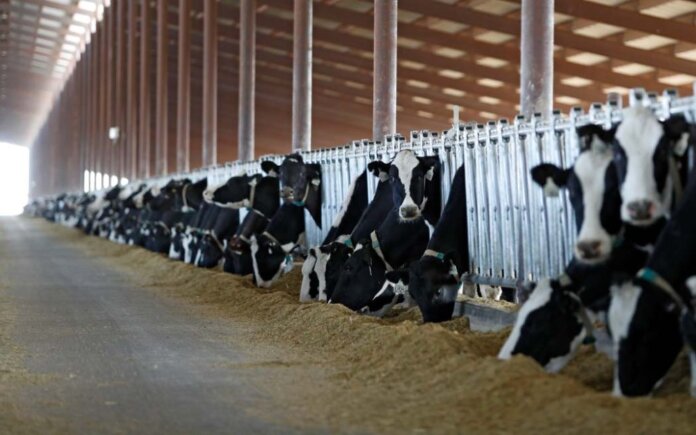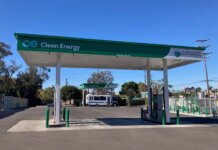Clean Energy Fuels Corp. has broken ground on a renewable natural gas (RNG) digester at Del Rio Dairy in Friona, Texas, its first in a joint venture with TotalEnergies. All the RNG fuel produced at Del Rio Dairy will make its way into Clean Energy’s nationwide network of RNG stations.
“With a growing focus on capturing methane highlighted by the recent discussions at COP26, the Del Rio Dairy RNG project is significant on many levels,” says Andrew J. Littlefair, president and CEO of Clean Energy. “It brings together concerned parties ranging from a family-owned dairy, to one of the world’s leading and most sustainably-minded energy companies TotalEnergies, to manage greenhouse gas emissions and tackle global warming. When the RNG produced here goes into the tank of a large vehicle, it will usually be replacing a much dirtier fuel, demonstrating the unique qualities of RNG as the cleanest fuel in the world.”
When completed, the Del Rio Dairy digester project will capture the waste from more than 7,500 milking cows and generate an anticipated 1.1 million gallons of RNG annually. RNG helps Clean Energy’s customers achieve their sustainability goals by dramatically reducing their greenhouse gas (GHG) emissions from transportation operations. Clean Energy has a target to provide RNG at all its U.S. stations and for the carbon intensity (CI) of the fuel to be zero by 2025.
Littlefair participated in a groundbreaking ceremony with members of the Gingg family who own Del Rio Dairy and executives from TotalEnergies and Montrose Environmental Group. Other partner companies include Black Bear Environmental Asset Advisors and Atmos Energy.
“Del Rio is a family-owned and operated dairy with multiple generations of Ginggs involved in running it. We take great pride in the sustainable way in which we operate,” states Gingg. “By adding a RNG digester to our operation, we will be able to say to future generations that we are helping to address serious climate issues that impact the world they live in.”
Agriculture accounts for nearly 10% of U.S. GHG emissions, according to the U.S. Environmental Protection Agency. Capturing methane from farm waste can lower these emissions. RNG is used as a transportation fuel and has lower GHG emissions on lifecycle basis when compared to conventional gasoline and diesel. The California Air Resources Board has given similar projects a carbon intensity (CI) score of weighted average of -320 compared to CI scores of 101 for conventional diesel fuel and 15 for electric batteries.







